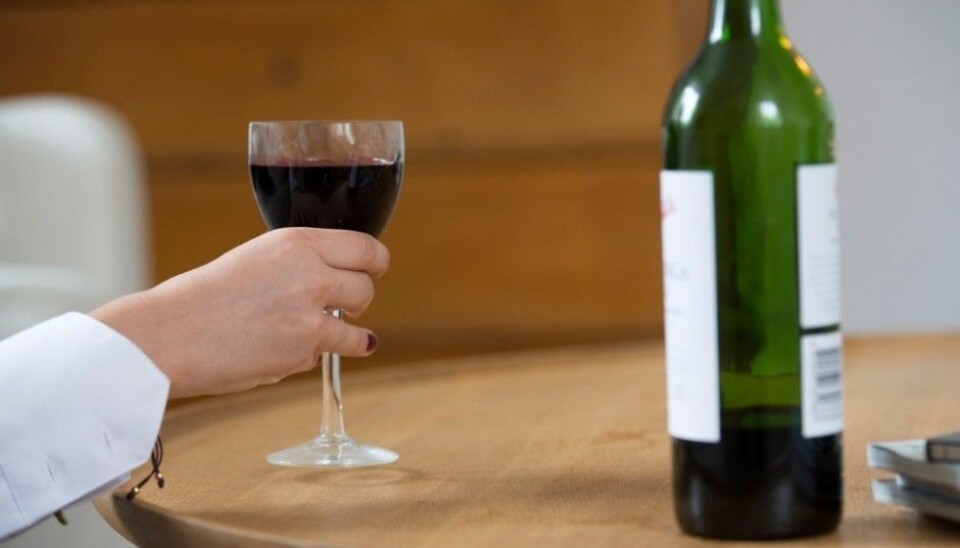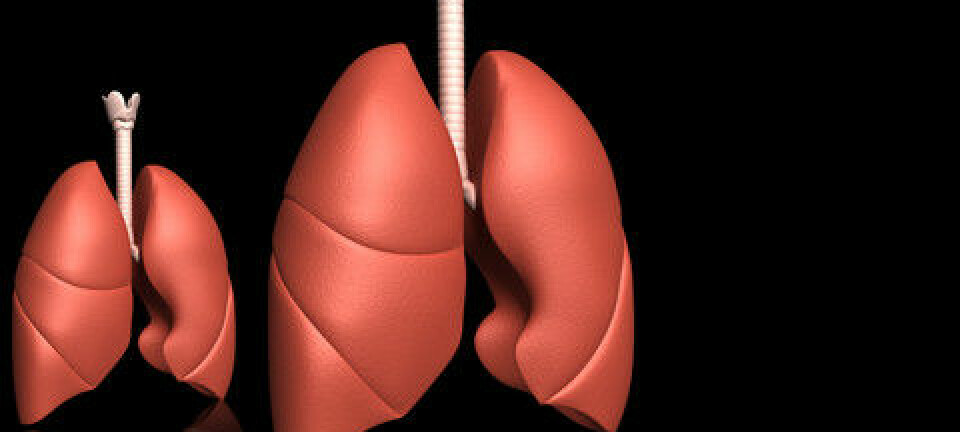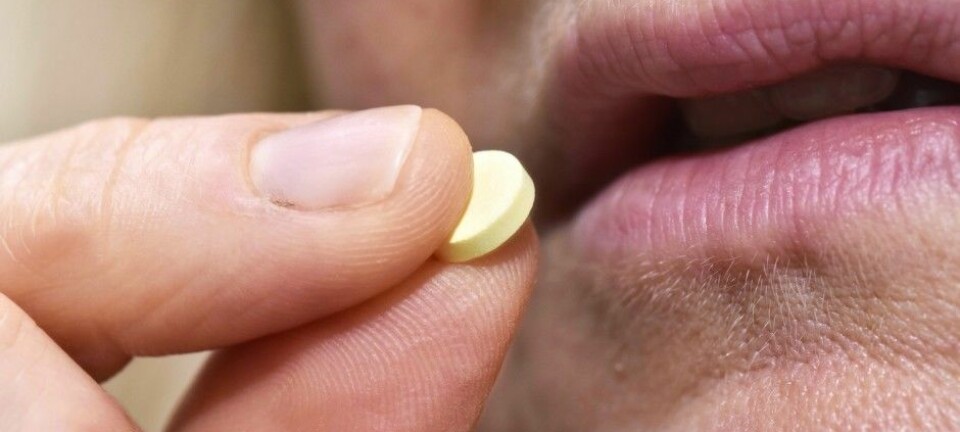
COPD patients can sleep better with alcohol
Most COPD sufferers can drink a glass of wine or two without worrying extra about its effect on their breathing.
Denne artikkelen er over ti år gammel og kan inneholde utdatert informasjon.
Chronic obstructive pulmonary disease (COPD) is a frightening affliction. Rightly, patients often worry about their ability to breathe. A special concern is the chance of hypoventilation while they sleep. This can lead to lung failure due to high pressure of carbon dioxide gas in the blood.
To avert tossing and turning with worry when they go to bed, many patients use sleeping pills.
Alcohol and the sedative zopiclone are known to raise levels of carbon dioxide in the blood amongst persons with healthy lungs. So health personnel have often warned lung patients against combining alcohol with sleeping pills like Zimovane and Imovane, which are brand names for zopiclone medication. But no study has been made assessing the risks.
A fresh doctoral dissertation from the University of Bergen has brought in some results which will probably be warmly welcomed by COPD patients who enjoy imbibing a glass or two of wine, beer or spirits.
Alcohol is a little better than sleeping pills

Nils Henrik Holmedahl is a chief physician at Norwegian Heart and Lung Patient Association’s clinics at Glittre, in Hakadal near Oslo. He has found that a moderate intake of alcohol does not lead to serious breathing problems for patients with a stable COPD.
Alcohol can even have a positive effect for some. The study was conducted with just 26 patients.
Alcohol led to lower CO2 concentrations than that seen with a 5 milligram tablet of zopiclone, which many COPD patients use nightly.
“Alcohol should not be used as a sleeping medicine. Most people who drunk it, whether they have healthy lungs or not, fall to sleep quickly and sleep soundly during the first part of the night and very lightly during the last part. The combined quality of sleep is poor. But I think my study shows there is little risk in drinking a couple of glasses now and then,” says Holmedahl.
Caution called for
The doctor stresses that he has only investigated the effect for one night, not several.
Holmedahl also points out that the study involved a small group and the results should thus be interpreted cautiously.
But it did show that a third of the patients exhibited lower average pressures of carbon dioxide gas in their bloodstream when sleeping under the influence of alcohol. In fact, nine of them breathed better asleep when they were slightly intoxicated.
This can be because alcohol dilates the bronchia and has some of the same effects as asthma medications.
“Although the study is limited, earlier studies have been done with even fewer patients. And nobody has measured CO2 levels on sleeping COPD patients who have taken zopiclone or alcohol. I have monitored how the patients sleep and how they are breathing. The methods used for measuring are accurate and take into accord the phases of sleep the patients were in during the night.”
Many breathe poorly when they sleep
Holmedahl found that many COPD patients have problems breathing while they sleep. He thinks this is a matter that demands more research.
“If the first sign of respiratory failure occurs during sleep, this might be a warning we should be on the alert for. One could start treatment earlier to avoid acute lung failure. The treatment would involve using a breathing apparatus at night.”
Challenging
Maintaining the quality of life among COPD patients can be very challenging, asserts Ola Storrø, an associate professor at the Norwegian University of Science and Technology’s Department of Public Health and General Practice. He is physician who treats a lot of COPD patients and knows how anxious they often are about nocturnal breathing difficulties. He considers research on improving the lives of people with this serious disease to be vital.
Storrø believes that the sleeping pills we now have are not right for COPD patients because of the accumulation of CO2 they risk at night.
“Naturally, the best thing is to neither use alcohol nor sleeping medicine. But if a patient needs to take something to fall asleep, sleeping pills are not so good. I find it intriguing that those who drink alcohol actually fare a little better than those who use the medication. I say this know full well that we as doctors naturally cannot recommend alcohol as medicine.”
-------------------------------------
Read the Norwegian version of this article at forskning.no
Translated by: Glenn Ostling


































